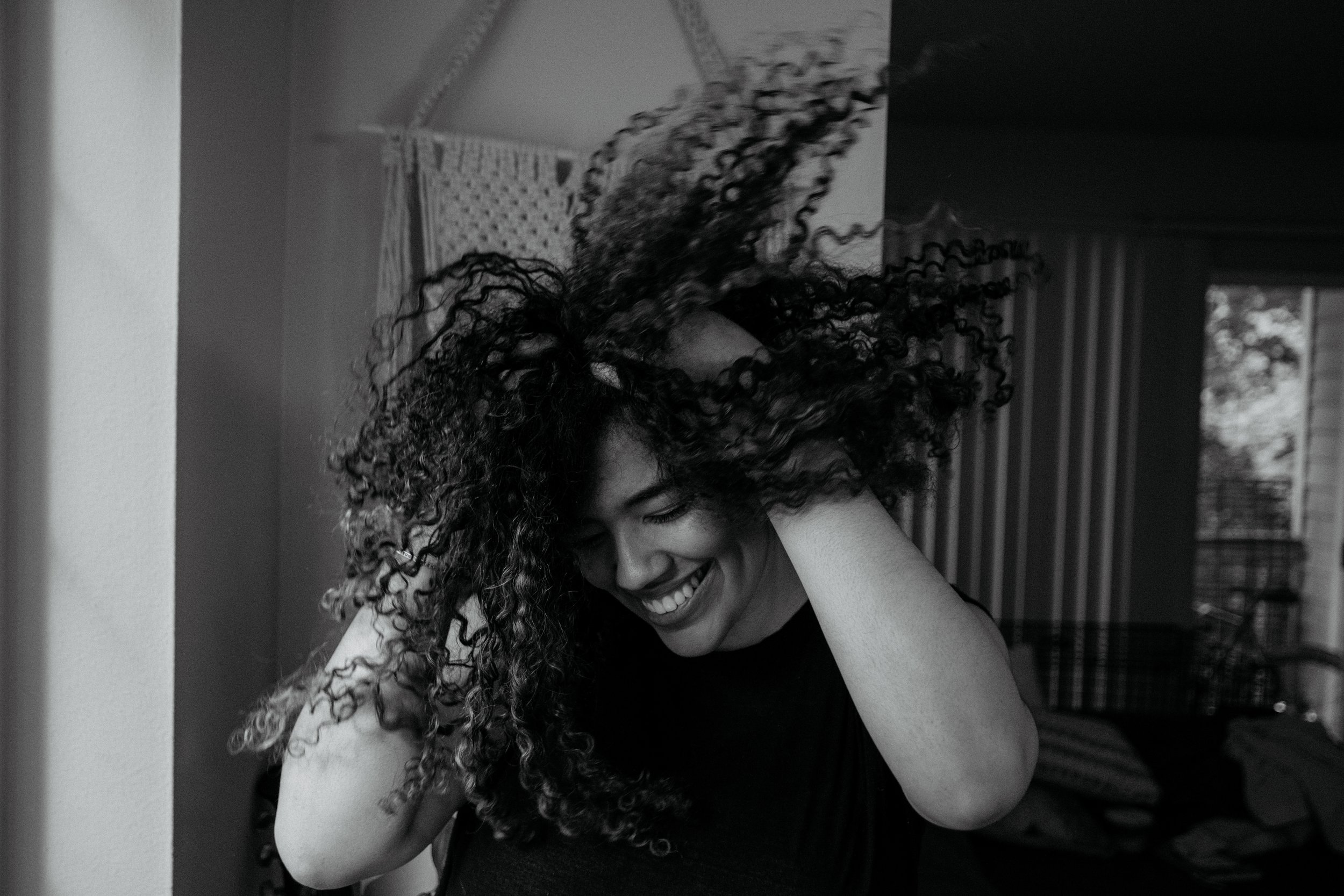3C
the complexity of hair in African American culture is something that i—as a white person with straight blond hair—was not inherently familiar with for most of my life. when i began working at a group home for young children, i began to see that the black childrens’ hair was not taken care of—and they noticed. i had a 7-year-old apologize over and over about how long it was taking for me to comb her hair because no one had touched it in weeks. i watched the black kids get denied haircuts every month because the volunteers didn’t know how to cut their hair. i saw staff members brush off a request to help comb or wash a 6, 7, or 8-year-old’s hair with a simple yet detrimental, “i don’t know how to do your hair.” these observations opened my eyes to hair discrimination, and with some more research i discovered that this complicated hair relationship has been forced upon African American people for much too long and in many different ways. i decided that i wanted to explore this even further for a class project. my good friend has done African American hair care trainings for group homes and foster parents, and i was so thankful for her willingness to help me with this project. her hair type is 3C.
“I am angry
because black little girls
are forced between knees
and straightened into
commercialized beauty
learning that naturalness
is a radical step toward
severed African roots”
-Kiana Davis, Digging for Roots—Resistance
“Don’t touch my hair
When it’s the feelings I wear
Don’t touch my soul
When it’s the rhythm I know
Don’t touch my crown
They say the vision I’ve found”
-Solange Knowles, Don’t Touch my Hair
“I am a person, not a throw blanket at Bed, Bath, and Beyond.”
-Sa’ida Shabazz, Hey White People: Please, Don’t Touch My Hair
“I spent countless
Hours alone in front of the
Mirror, hypnotized by
What I wished for and
What my imagination
Had made real. To have
A white girl’s hair.”
-Marita Golden, My
black hair: a tangled
story of race and
politics in America
“In my opinion, black women’s hair is like the petals of flowers,
different in all shapes, sizes, and colors. My hair is a reminder of my
roots from my ancestors and I’m very proud of its versatility. We are
not packaged Barbies that only come in one style.”
-Renee Bhagwandeen, from Pride, crown, and soul: the power of Black hair, by Sarah Morgan
“The style of my hair
Does not take away
from my
accomplishments,
nor does your
opinion define
my beauty.”
-Brea Finney,
from Pride, crown,
and soul: the power
of Black hair,
by Sarah Morgan
“My hair is my pride. My hair took a long time to get used to. My hair
makes me who I am. I used to wish that my hair was straight and
blonde. I’d love to explain to a seven-year-old me, that while white
beauty standards temporarily ruined my self-concept, I would later pick
up my own pieces and become strong, skilled, and satisfied with myself.”
- Sarah Morgan, Pride, crown, and soul: the power of Black hair
Beautiful
They said
I would never be beautiful
Painted me blue, black
Grinning forever
Big red lipped
Hair standing on end
Mocking God’s creations
They wanted me to hate
The natural texture of my hair
To despise the color of my skin
To feel inferior under laughing eyes
But I have unearthed the beauty
Behind their distorted images
Wrapped hands
Around hair of wool
And molded in love
Stared passes masked horrors
And fell in love with dark skin
Replacing their horror with beauty
And the shame with honor
They said……
-Kiana Davis, Digging for Roots







